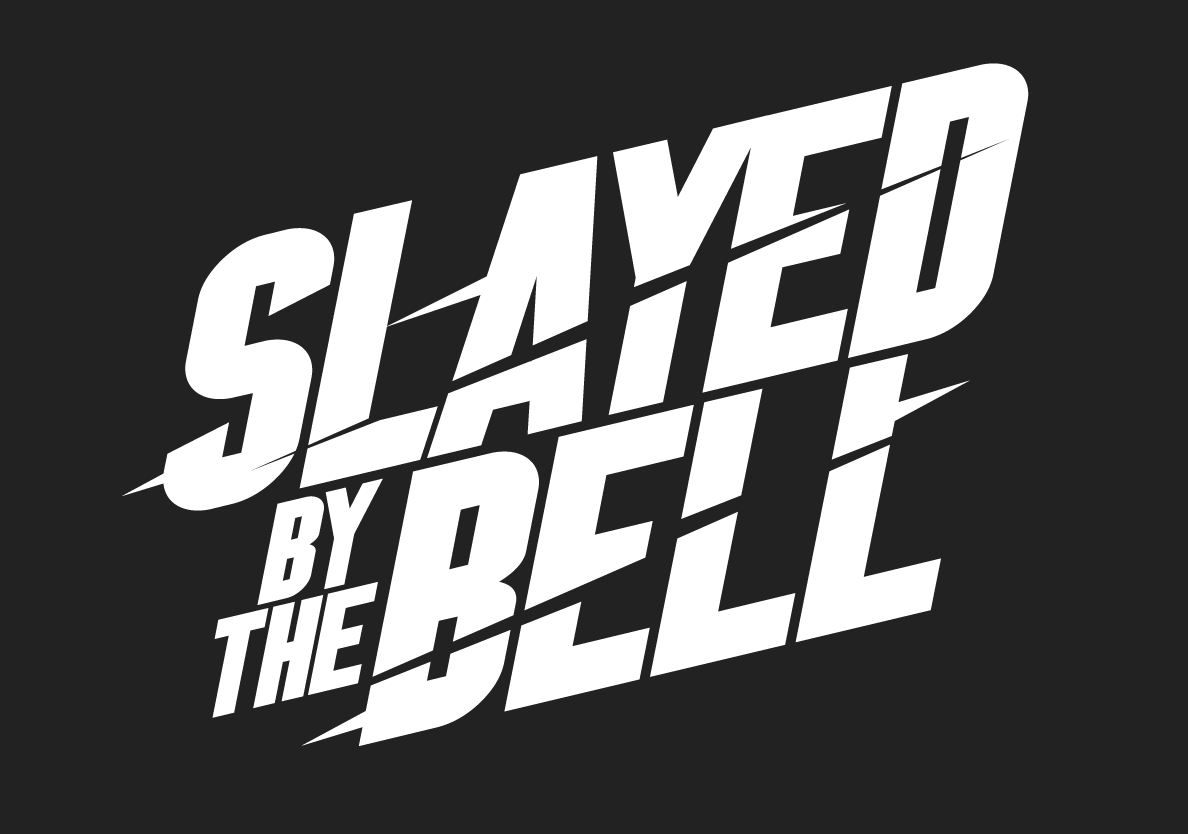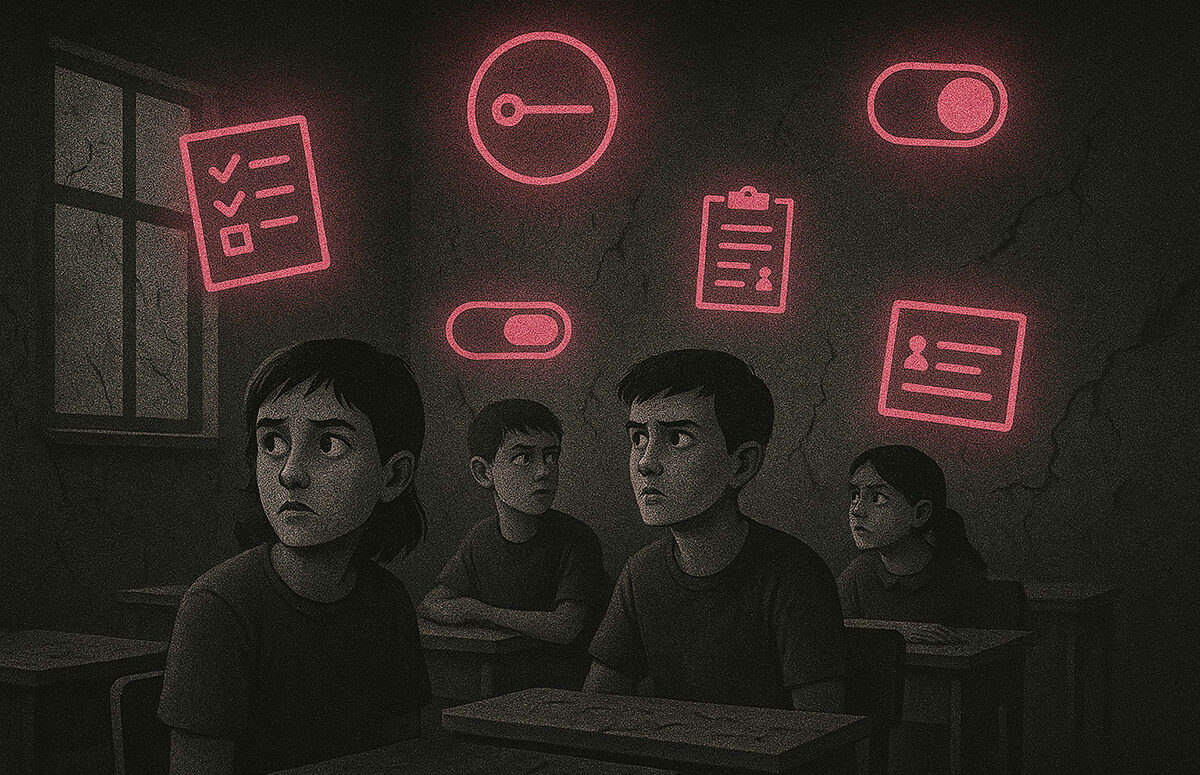Why Modern Lessons Are Designed to Distract
Lessons are no longer about learning. They’re about ticking boxes. Students get dragged through pointless routines. Teachers are forced to follow a format that kills thought. Every lesson looks busy on the surface, but underneath, nothing’s happening.
This isn’t just bad practice—it’s a failure of fucking purpose. Schools have been redesigned to control attention, not to build understanding. As Psychology Today puts it, we’re in an attention economy now—and students are the ones being harvested. Learning isn’t the goal. Looking like learning is.
Problem
Modern lessons is a scripted performance, often pencilled by directors of subject. You start with a compulsory “starter/do now” whether it makes sense or not. Learning objectives must be written up—even if no one looks at them. “Progress” needs to be shown every ten minutes, even if it’s fake. Peer assessment is slapped on so there’s “evidence in books.” Green fucking pen, purple fucking pen…rainbow pen…. And of course, you better finish with a “plenary”—even if it’s just a rushed question nobody fucking answers.
This is not education. It’s bullshit bureaucracy. It’s a way to make adults feel in control and keep students busy. No one is thinking deeply. No one is allowed to. Because education is not for kids… it’s for adults.
The pressure to teach like this doesn’t come from evidence or experience. It comes from people who don’t teach—or who stopped years ago. The system demands performance. You either play along or get pushed out.
Causes
This mess is built on one bullshit idea: if you can’t measure it quickly, it must not be happening. So schools stop trying to support real thinking and start chasing surface-level proof.
The Psychology Today piece calls this out for what it is—attention theft. The systems aren’t broken by accident. They’re designed to distract, fragment, and control. That’s what’s happening in classrooms. Fast transitions. Constant checking. Tasks piled on top of each other. It’s not about helping students—it’s about managing their attention like a resource.
Jonah Berger shows that environments shape behaviour. In schools, the environment has been hijacked. Teachers don’t plan for depth. They plan for observers. Shotton calls this the tyranny of easy metrics—systems become obsessed with what they can track, and ignore what actually matters.
And then there’s Orwell. He warned us that control doesn’t always look violent. It looks ordinary. It looks like a PowerPoint template. A starter. A progress check. A success criteria. It becomes routine. No one questions it. That’s how you kill thought.
‘The curriculm is a cellblock and it makes me wanna spit’
Rage against the machine
Effects
Students stop thinking. They wait to be told what to do. They learn how to perform tasks, not how to understand anything. When they’re asked to explain, they fall back on what they’ve been trained to repeat—key words, sentence starters, assessment rubrics. They don’t know the subject. They know the system.
Their attention is fucked. We tell them to focus, then drag them through five different activities in one lesson. We force them to shift gears constantly, never giving them time to concentrate on one thing. Then we complain about their engagement. Of course they can’t engage. The structure doesn’t let them.
Teachers are fed up. They know it’s nonsense. They see how it fails students. But the threat of lesson observations, line management, and inspection culture forces them to play the game. Some push back. Most give in. Over time, the job becomes about surviving the system—not doing the job well.
As Steven Johnson says, strong ideas don’t appear fully formed. They build over time. They need space and focus. We’ve created a model that guarantees those things never happen. Then we pretend to be shocked when students don’t understand anything properly.
Solutions
Start deleting pointless tasks. If a plenary doesn’t serve the lesson, bin it. If the peer-assessment is meaningless, don’t do it. If your learning objective is just there for show, ignore it. You are not a robot. Stop fucking teaching like one.
Refuse to overload lessons. One good idea taught well is better than five tasks students don’t understand. Let students wrestle with concepts. Let them sit with problems. If that takes 40 minutes, good. That’s learning.
Leadership needs to stop dictating structure. Templates are not teaching. If you’re leading a school and forcing every lesson into the same format, you’re not supporting learning—you’re killing it. Fuck off!
Progress is not something you should have to “prove” every 15 minutes. Most of it is invisible in the moment. Stop pretending otherwise. If you’re judging lessons based on how much gets written down, you’re doing damage.
And stop planning for observers. Plan for your students. If the person watching doesn’t get it, explain it. If they still don’t get it, they shouldn’t be in your classroom in the first place.
Most importantly, and with fear of sounding like Trump: make lessons calm again. Cut the noise. Let students focus. Teach them how to think, not how to perform for the system.
Conclusion
This is not a small issue. It’s not a minor planning problem. It’s a system-wide refusal to prioritise thinking. Lessons have been hollowed out and repackaged to look impressive on the surface while delivering next to nothing underneath.
We know how people learn. We know what good teaching looks like. But we’re being told to ignore that so schools can show off tidy exercise books and laminated objectives. Dan Ariely warned us that people will follow irrational systems if they appear logical. That’s exactly where we are.
This isn’t education. This is distraction management. And the only way to change it is to start calling it out for what it is—loudly and without apology.

